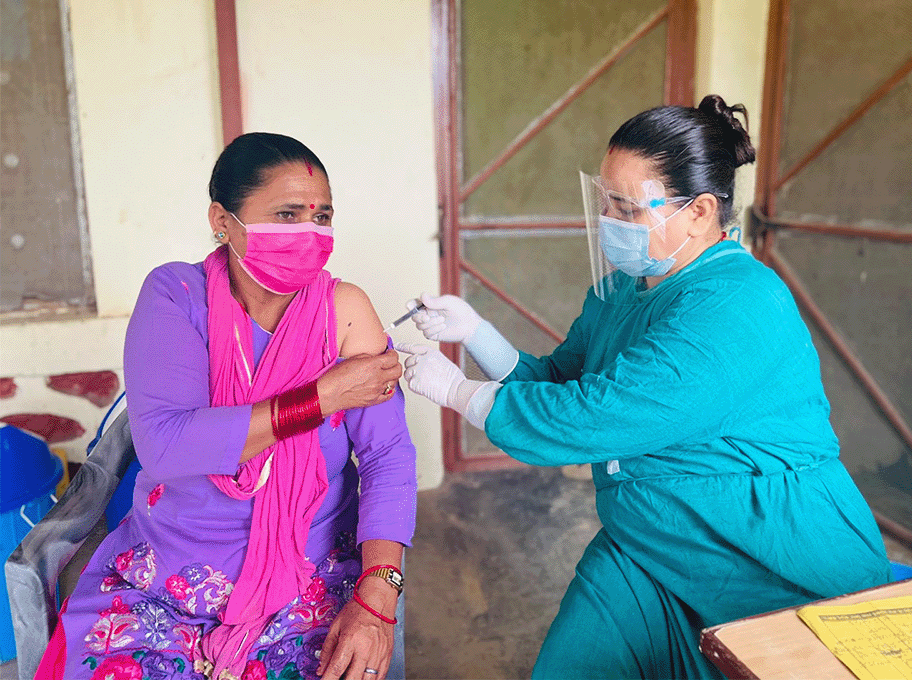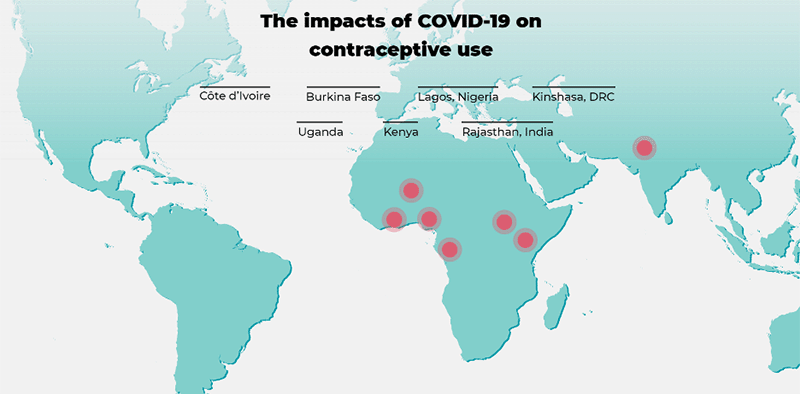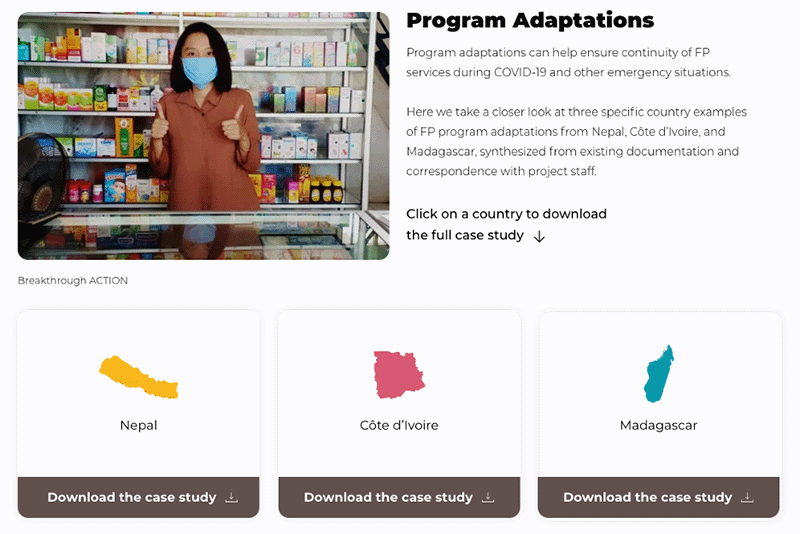Introducing Connecting the Dots Between COVID-19 and Family Planning

Connecting the Dots Between Evidence and Experience combines the latest evidence with implementation experiences to help technical advisors and program managers understand emerging trends in family planning and inform adaptations to their own programs. The inaugural edition focuses on the impact of COVID-19 on family planning in Africa and Asia.
The family planning community has been working tirelessly to enable people around the world to access contraception during the COVID-19 pandemic. As we enter the third year of the pandemic, answers to questions about the impacts of COVID-19 on family planning use and programs are emerging:
- Have women changed their minds about wanting to become pregnant because of COVID-19 concerns?
- Did contraceptive use change during the COVID-19 pandemic?
- What lessons have we learned that could be applied to this ongoing pandemic or future crisis situations?
A large amount of data has been collected to document the impact of COVID-19 on family planning. We reviewed many data sources to identify and distill key messages that are specifically relevant for family planning programs. The result is Connecting the Dots Between Evidence and Experience: Impact of COVID-19 on Family Planning in Africa and Asia, an interactive site that displays the effects of COVID-19 on family planning use and programs during the first year of the pandemic.
You can use the interactive map to explore key Performance Monitoring for Action (PMA) family planning indicators in the context of stay-at-home restrictions and rising COVID-19 cases from seven countries. Explore interactive charts on:
- Pregnancy desires
- Contraceptive use
- Switching to a less effective or no method
- COVID-19’s impact on non-use of contraceptives

Despite its devastating effects, the COVID-19 pandemic spurred innovations in programs and policies that may not have otherwise been attempted. Program adaptations include providing remote or telehealth services or dispensing more units of a short-acting method to mitigate service disruptions and maintain access to family planning. Many programs plan to continue these adaptations so that gains made during this exceptional period will have lasting, positive effects on access to family planning. We created three case studies, which you can download from Connecting the Dots, summarizing the use of emergency funding in Nepal, a social and behavior change radio campaign in Cote d’Ivoire, and remote supervision of providers in Madagascar to introduce and scale up DMPA-SC self-injection.
You can delve into the topic of COVID-19’s impact on family planning more deeply by downloading a dataset to explore subgroup differences (for example, by age or urban versus rural residence); exploring the FP insight Connecting the Dots collection; and listening to a December 2021 webinar on the key findings from our review and their implications (in French or English).
Connecting the Dots shows that the impacts of COVID-19 on family planning use and programs may not have been as severe as originally feared.
Although we do not know what the future of the COVID-19 pandemic holds, Connecting the Dots found that family planning users and programs were resilient early in the pandemic. Other recent reports, including one from FP2030, another by the Reproductive Health Supplies Coalition and John Snow, Inc., and documentation from the Research for Scalable Solutions (R4S) project, support these findings. We hope you can use these lessons in positive ways, including applying this knowledge to future crises.
Connecting the Dots between COVID-19 and Family Planning was synthesized by Knowledge SUCCESS in collaboration with Performance Monitoring for Action (PMA), the Family Planning Association of Nepal (FPAN), Access Collaborative, Breakthrough ACTION, and West Africa Breakthrough ACTION.






